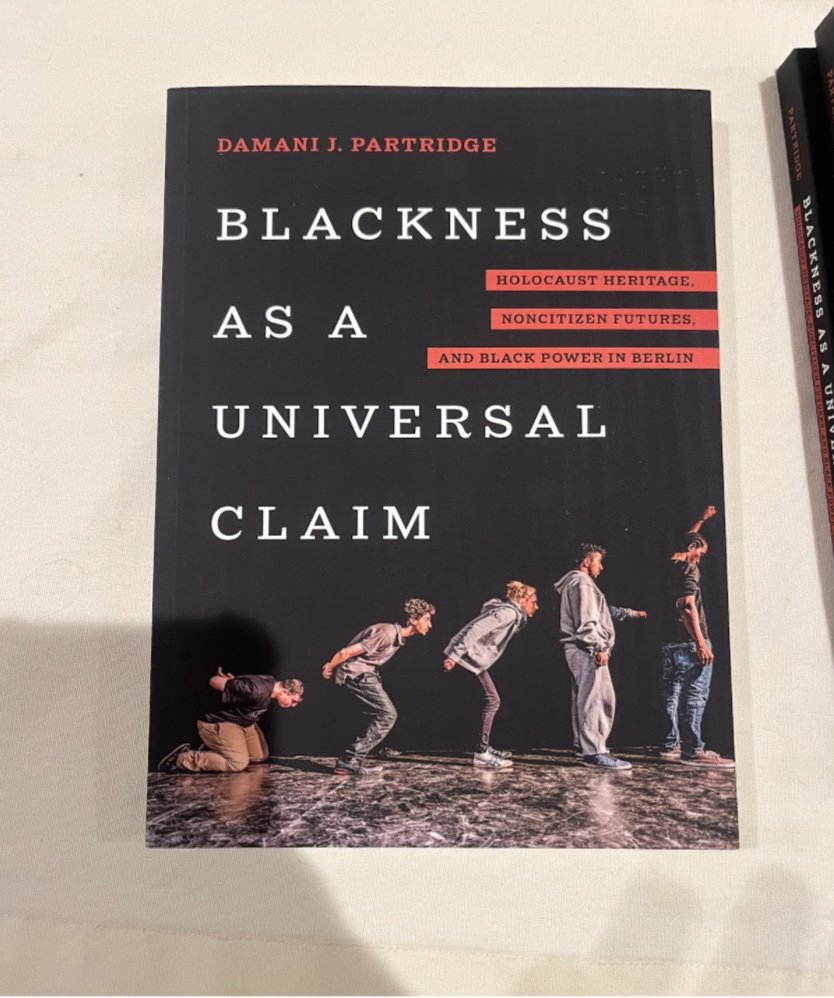Photo by Elizabeth Murray ‘26
Dr. Damani J.Partridge discussed the role of theater in the claiming of black identity on Feb.28.
By Elizabeth Murray ’26
Staff Writer
Content warning: This article discusses the Holocaust.
On Tuesday, Feb. 28, Mount Holyoke College’s department of German studies hosted a discussion with Dr. Damani J. Partridge titled “Blackness as a Universal Claim: Holocaust Heritage, Noncitizen Future, and Black Power in Berlin” in the Great Room of the Community Center. Partridge, a graduate of Amherst College, is a professor of Anthropology, Afroamerican and African Studies at the University of Michigan.
He is also vice president and president-elect of the German Studies Association. In attendance at the event was a mix of students and several faculty members, including interim president of Mount Holyoke College, Dr. Beverly Daniel Tatum, who introduced Partridge to the audience.
To start off the discussion, Partridge showed a short film called “Change the System” by Ibrahim Telly Balde, which showcased his and others’ experiences as Black undocumented immigrants in Germany and the struggles they face within the systems that the state has established.
One such challenge is that the easiest way for undocumented immigrants to get documentation is to marry or have a child with a German citizen, steps that Telly Balde is not ready for at this stage in his life. The film is a mix of documentary and drama. Street interviews are conducted with other African immigrants as well as German citizens.
Telly then gives his own perspective and dramatizes his experience of living as an undocumented immigrant in Germany. The interviews and scenes when Telly speaks to the camera are spoken in English, and the dramatized instances are spoken in German.
While there were no subtitles for the film, Partridge translated the German-speaking portions for the audience.
Partridge began by discussing the research he conducted with the Black immigrant community in Berlin while writing his book, “Blackness as a Universal Claim: Holocaust Heritage, Noncitizen Futures, and Black Power in Berlin.”
He told the story of an immigrant from Guinea who, after coming to Berlin, became involved in the theater community, learned about the Black Power movement and embraced Blackness in modern-day Germany. Partridge then spoke on the political act of claiming Blackness and how other communities of color have used it to fight against discrimination. In Berlin, in this type of theater — which he calls insurrectionary theater — actors are encouraged to improvise and everyone must participate.
This practice has served as a way for Black actors to explore their identities and spark activism. Partridge argued that Germany’s history of the Holocaust heavily impacts discussions of race and discrimination and that while German society is well-known for fighting hate and white supremacy when many communities of color bring up their experiences, they are seen as trying to diminish the impact of the Holocaust. Partridge ended his lecture on a note of uncertainty, referencing the fall of the Berlin Wall and how similar the historical event is to the current moment of uncertainty about the next steps forward in terms of universal Blackness.
Partridge then took questions from the audience. Attendees asked him about his time studying the insurrectionary theater troupes, and his observations on Blackness as an identity.
““Professor Partridge’s ideas about Blackness and its claim and how it has been seen throughout history is very interesting and [I also find it interesting] how this identity has been shared using theater.”
”

